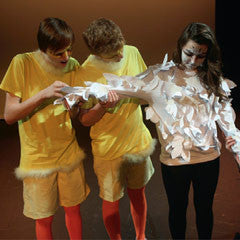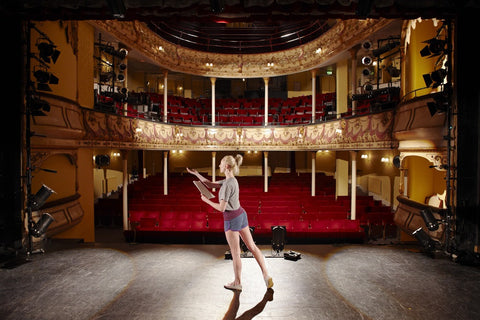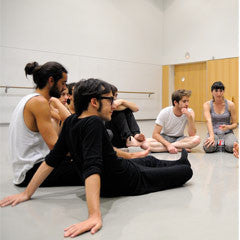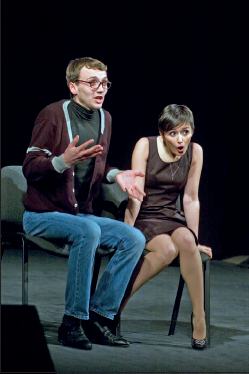
Creating a Theatre-in-Education project and interacting with outside bodies
£14.95
The beauty of the diploma qualification in Creative and Media is the real-life experience that the course gives its students, which directly replicates the work of professionals in the industry. At Level 3, students will always be working towards an actual production, which makes the work exciting and relevant to them rather than hypothetical. Students operate as if they are a professional performance company and take on all the responsibilities of producing a performance.
This approach means that the students will be assessed on practical demonstration of their performance skills but also on how they interact with outside bodies and agencies, allowing them develop skills in communication that are vital for a career in the creative industry. In the project described in the following scheme of work, students were set a brief by arts development agency Take Art Theatre and Healthy Schools Somerset collectively, to devise and tour a piece of theatre and drama workshop with the purpose of raising the self esteem of pupils in Years 5 and 6.
Principal learning in these schemes is in dance and drama, but all students experience both of these disciplines as well as musical theatre and song, technical theatre and stage management and film production. This production is an opportunity for all students to develop skills in acting, although they will bring different strengths to the piece and the way in which it is devised. Some students will choose to direct in this project so will take a lead in the devising of the piece of theatre and in creating and delivering the workshop.
This scheme is not split into individual lessons and time restrictions are not given. This is due to the fact that delivery of the diploma will vary so greatly from consortium to consortium. Although an introduction to each element of this scheme will need to be carried out with the whole group, the tasks have been designed to run simultaneously with small groups devising their material separately. Work in this unit also supported teaching and learning in the Additional and Specialist Learning Component of the course, with BTEC Level 3 Subsidiary Diploma in Performing Arts (Acting) Unit 11: Theatre for Children.
Learning objectives:
- To explore opportunities for collaboration projects in response to the local area
- To experience the work of a contemporary theatre in education (TiE) practitioner and take inspiration for the production
- To develop technique in devising and dramatizing for a specific target audience
- To share and understand expectations of the partners before work begins
- To conceive an idea on which to base a piece of theatre and pitch this to the group
- To begin to develop the performance according to target audience
- To respond to guidance of the interaction partners
- To devise a workshop to allow the audience to explore the themes within the piece
- To use and manage a budget effectively
- To understand the legalities of royalties and copyright when using music
- To develop good practice in considering and planning for health and safety
- To experience the planning and execution of logistics involved in touring theatre.




